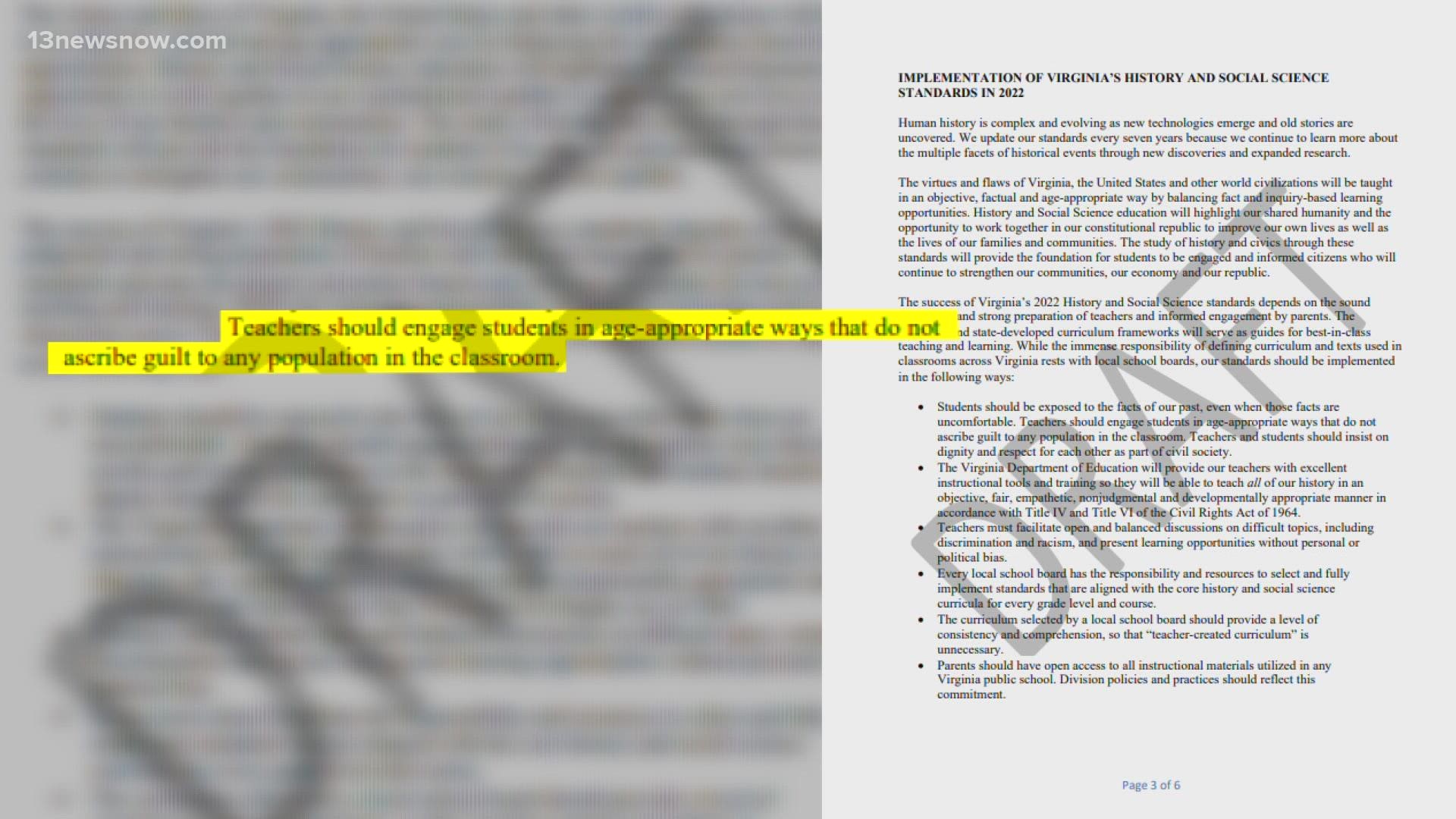NORFOLK, Va. — The facts of history are both unbiased and objective.
“History does not have favorites. It is what it is, if you’re accurate in your depiction," said Dr. Cassandra Newby-Alexander.
Right now, the way educators teach our past is on the table for review.
Last week, public speakers spent hours opposing recently introduced Standards of Learning of history and social studies to the state's Board of Education.
The criticism and pushbacks come from noted absences observed on the proposed 2022 standards, including names like Jackie Robinson, Cesar Chavez, Thurgood Marshall, Pocahontas and others from Elementary-level education.
State superintendent Jillian Balow also publicly apologized for the listed references to indigenous and native people as "first immigrants."
Former Secretary of Education Anne Holton raised concern about one particular line in the documents:
Teachers should engage students in age-appropriate ways that do not ascribe guilt to any population in the classroom.
Newby-Alexander, Dean of the College of Liberal Arts at Norfolk State University, told 13News Now Monday that when history is taught correctly, the lessons aren't meant to elicit guilt.
“The emotions are going to be there when you read about genocide, it is going to elicit an emotional response, but it shouldn’t elicit an emotional response that’s guilty. The response should be one of empathy of sympathy," she says.
Newby-Alexander was a stakeholder in the previously drafted 400-page document, including both standards and curriculum framework, that was started under the Ralph Northam administration.
She said she was not a part of the newly proposed history standards, which many speakers and even Board of Education members have criticized for arriving before them too quickly.
She argues language, particularly the "guilt" statement found in the standards and principles, hinders a teacher's ability in K-12 education to properly teach moments of history that may contain negative details.
“What that statement really says is, teachers cannot teach real history. Not honestly, in a balanced way, for fear somebody in their class will say, 'You’re making me feel guilty.’"
She said the standards are written in a way to make people feel better about their past, and called the document and certain omissions and additions to it "troubling."
One example she pointed to is the added number of times the word “patriotism” appears in the new standards, twelve times compared to six instances in 2015.
Virginia Gov. Glenn Youngkin told media last week he has "not been pleased” with where the standards process is, stating that it has not followed his initial directive.

